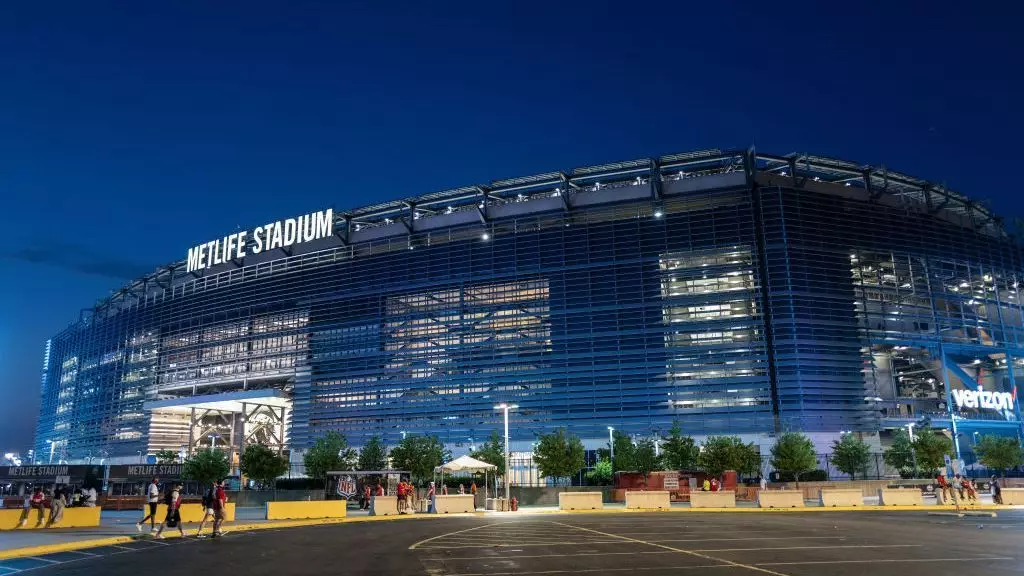FIFA’s recent announcement about the 2025 FIFA Club World Cup has already ignited excitement and debate within the global football community. Slated to take place from June 15 to July 13, 2025, the tournament will feature an unprecedented format and will unfold across 12 iconic venues in the United States. This ambitious undertaking marks a significant moment in the history of club football, promising a new era of competition among the world’s elite teams.
The selected venues span a wide geographic area, emphasizing the United States’ commitment to hosting a high-profile international sports event. The final is set to be held at the MetLife Stadium in East Rutherford, New Jersey. Other notable locations include the famed Mercedes-Benz Stadium in Atlanta and the historic Rose Bowl in Los Angeles. The choice to showcase diverse locations reflects both excitement and the inherent challenges of organizing such a vast championship.
One of the most noteworthy changes implemented for the 2025 iteration of the Club World Cup is the expansion of teams from seven to 32. This dramatic increase signifies FIFA’s intent to embrace a more inclusive approach to global club football, allowing teams from various regions including Africa, Asia, and Oceania to compete alongside established powerhouses in Europe and South America. Such diversification is commendable as it promises to enhance the competitive landscape and provide unique matchups previously unavailable in the Club World Cup format.
Furthermore, FIFA aims to boost the profile of football across different continental federations by giving underrepresented regions a platform to showcase their talent on an international stage. This mission of inclusivity was underscored by FIFA President Gianni Infantino during his announcement at the Global Citizen Festival in New York, where he stated, “This new FIFA competition is the only true example in worldwide club football of real solidarity and inclusivity.”
Despite the enthusiasm surrounding the tournament, FIFA’s plans have not been without criticism. Concerns about schedule congestion, particularly for clubs participating in domestic leagues, have been voiced by various football organizations. The Premier League, among others, has raised alarms about how the tournament’s timing clashes with the traditional summer window, typically reserved for international matches.
Critics argue that increasing the number of matches might exacerbate player fatigue and could potentially diminish the quality of the games. FIFPRO and the Professional Footballers’ Association have expressed reservations, highlighting the challenges players face when asked to participate in an extended tournament amidst a packed football calendar. Balancing growth with player welfare will be an essential consideration for FIFA as the 2025 event draws nearer.
Logistical Considerations
Logistics have also played a crucial role in the planning of this expansive tournament. The selection of host cities primarily on the East Coast aims to prevent scheduling conflicts with the 2025 Gold Cup matches in the West. Such careful planning illustrates FIFA’s attempts to accommodate all stakeholders in the football ecosystem. Furthermore, the qualification process is set to conclude soon, with just two spots left unfilled—one from South America and one from the United States.
The decision to include Seattle Sounders’ Lumen Field as a host due to their qualification showcases FIFA’s responsiveness to the dynamics of club football in the U.S. However, it remains to be seen how the football community will ultimately respond to the challenges posed by this new tournament structure.
The implications of the 2025 FIFA Club World Cup will likely extend beyond the tournament itself, as it aims to redefine the landscape of club competitions globally. By fostering inclusivity, FIFA is not just giving a platform for diverse clubs to shine, but is also elevating the overall brand of football, potentially cultivating new fan bases and interest in regions previously overshadowed by football’s traditional power centers.
As we await the draw in December, the world’s attention will be on this innovative tournament that promises to write a new chapter in football’s history. It presents an opportunity to create memories, celebrate diversity, and acknowledge the universal appeal of the sport. Only time will tell how well these ambitious goals can be realized, but the journey toward an inclusive and competitive international stage begins now.


Leave a Reply